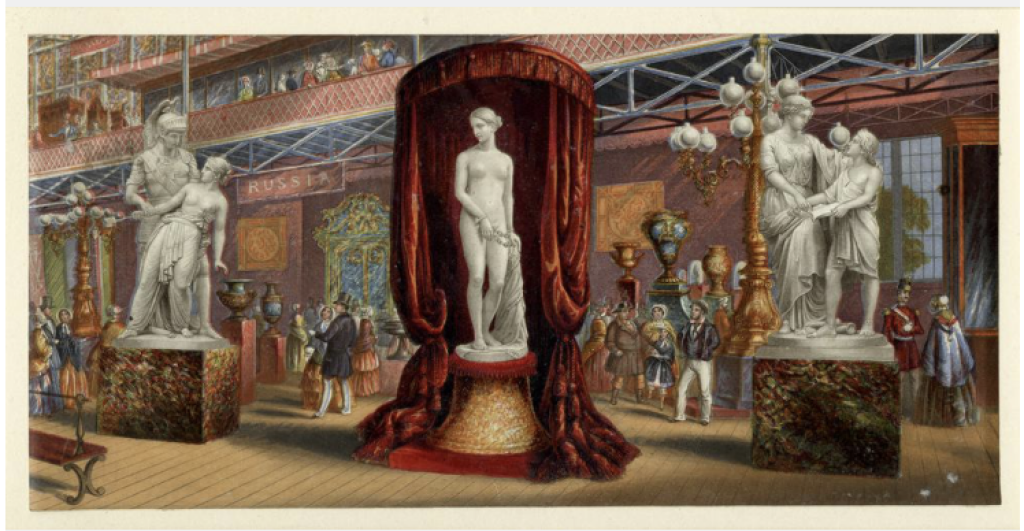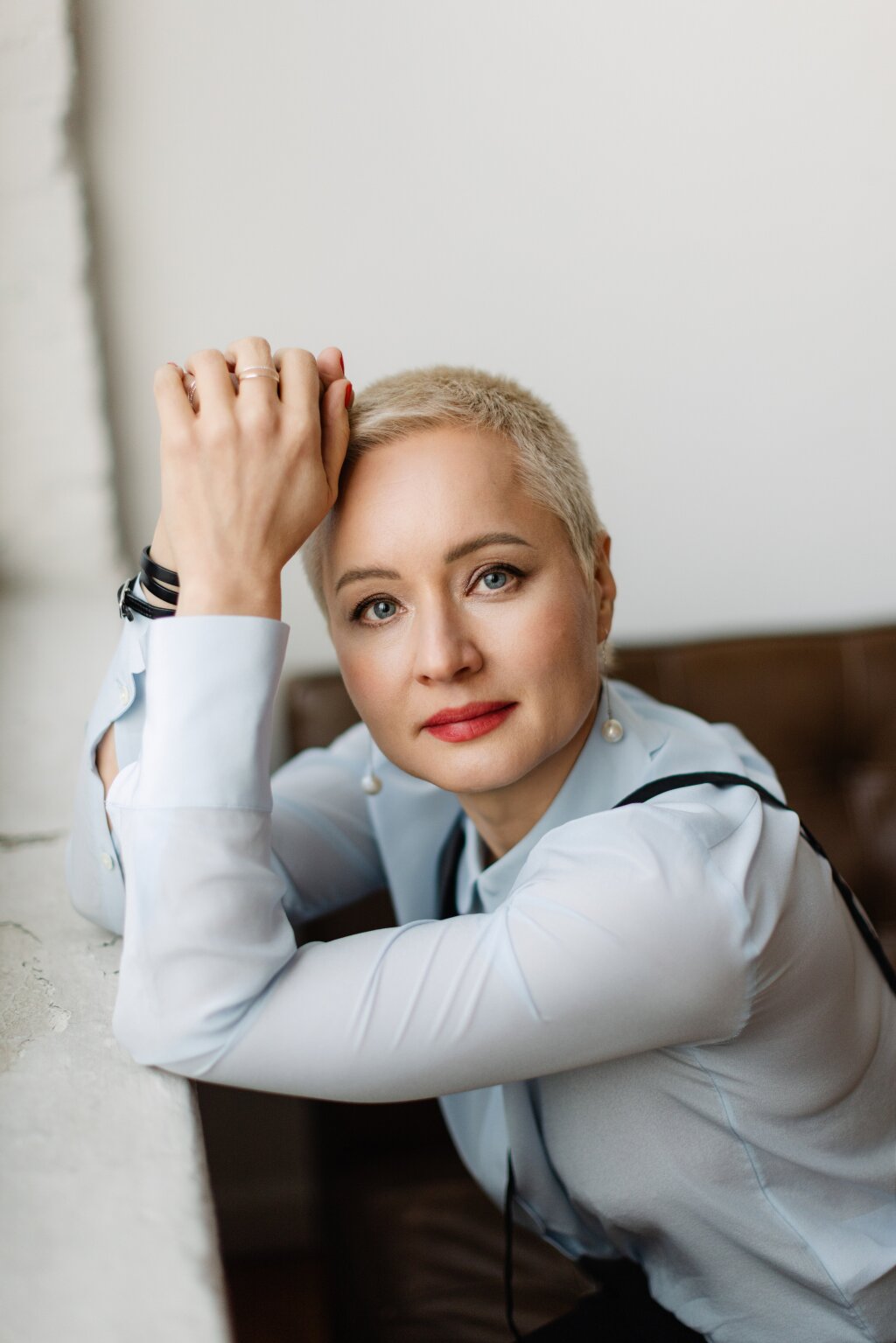In the mid-nineteenth century, after Great Britian had legally ended the slave trade and abolition was under debate in the United States, foreign commentators accused the Russian Empire of perpetuating “white slavery.” Reckoning on a contradiction of terms, “white slavery” referenced various bonded labor practices, including serfdom, but particularly decried the sexual bondage of white women. Perhaps the most famous artifact of this discourse was Hiram Powers’s 1849 The Greek Slave, a white marble sculpture of a woman in chains with copies around the world—including at a Russian prince’s estate and at the Russian section of the 1851 Great Exhibition in London’s Crystal Palace. In this talk, Fiona Bell will propose that the “white slavery” canon includes not only Western objects about Russia, but also Russian cultural objects. Fiona Bell will take Ivan Turgenev’s 1862 novel Fathers and Children as one example of how Russian writers articulated the class violence of serfdom using the western lexicon developed around racialized chattel slavery. Turgenev’s novel depicts a network of gentry, mixed-class, and peasant characters in the Russian countryside of 1859, on the eve of the abolition of serfdom. Nikolai Kirsanov, one of the titular “fathers,” is anxiously reforming his estate, freeing those he enserfs and ceding much of his land to them; his ultimate act of progressivism is, at the novel’s end, his marriage to Fenechka, a peasant housekeeper with whom he has a child. Fiona Bell will present this cross-class marriage plot in Fathers and Children as a rebuttal to charges of Russian serfdom as “white slavery,” and thus a Russian literary intervention in transnational debates on race, bonded labor, and sexual violence. If the “white slave” is inherently unmarriageable, then Turgenev suggests, with this strange marriage plot, that the enlightened Russian enserfer can help his peasants transition into independence and, it follows, racial whiteness. With this example, Fiona Bell will propose that antiblackness, a set of philosophical propositions about subjectivity and humanity, is an important resource of the Russian literary canon—even and especially in novels with “all-Russian” casts.
Speaker: Fiona Bell (Yale University)
Discussant: Maria Taroutina (Brown University)
Image source: britishmuseum.org No.3: three statues, with Hiram Powers' 'Greek Slave' in the centre, before the Russian department of the exhibition, with square top. 1852 Baxter process © The Trustees of the British Museum



